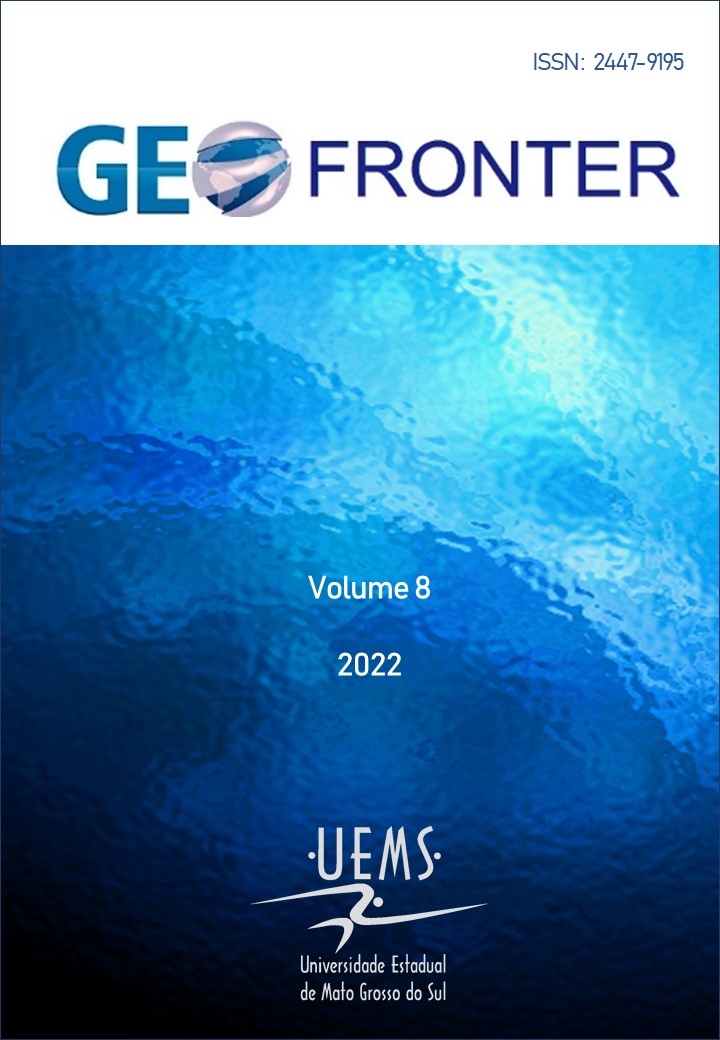ELECTRONIC GAMES AS A POSSIBILITY FOR AN ENTREPRENEURIAL BRAZILIAN STATE
DOI:
https://doi.org/10.61389/geofronter.v8.6954Keywords:
Economic Geography; Games; Technology; Innovation.Abstract
The expansion of the electronic games economic segment in the Brazilian territory shows up aligned with technological innovation, along with the appreciation of symbolic and creative elements, presenting great capacity to move the economy, given that developers’ revenues are increasing. Therefore, the main objective of the present work is to identify how the production of electronic games in the Brazilian territory can trigger a favorable condition towards the consolidation of a truly entrepreneurial State concerned with growth and socio-economic development. In order to achieve this objective, the methodology consisted of a bibliographic review on the subject along with the collection of some indicators. In this direction, a maximum strategy that should be directed by the State promoting its entrepreneurial side was idealized, called the Industrial Complex of technology, innovation, and electronics. Inside this complex aligned with economic segments that are capable of generating technological advances, and systemic innovation, there is the electronic games segment, which was also contemplated in the research with specific strategies that aim its expansion and consolidation in the country. Accordingly, only by promoting innovative alternatives concerned with plural gains, while the State operates as the catalyst and planner agent, one can aim for a Brazil with growth and socio-economic development.
References
BOITO JR., A. Reforma e crise política no Brasil: os conflitos de classe nos governos do PT. Campinas; São Paulo: Editora Unicamp, Editora Unesp; 2018.
CASTELLS, M. A sociedade em rede. 2. ed. São Paulo: Paz e Terra; 1999.
CASTELLS, M. A sociedade em rede. 8. ed. São Paulo: Paz e Terra; 2005.
DARDOT, P.; LAVAL, C. A nova razão do mundo: ensaio sobre a sociedade neoliberal. São Paulo: Boitempo editorial; 2016.
DINIZ, R. G.; ABRITA, M. B. A indústria de games no território brasileiro: um estudo baseado em dados e indicadores recentes. Formação (Online), v. 28, n. 53, p. 719-748, 2021.
ENGELS, F. A origem da família, da propriedade privada e do estado. São Paulo: Boitempo; 2019. Tradução de: Nélio Schneider.
FIEMS (Brasil). Institucional - Quem Somos. 2022. Disponível em: http://www.fiems.com.br/quem-somos/institucional. Acesso em: 09 jan. 2022.
GHOSH, S.; NANDA, R. Venture Capital Investment in the Cleantech Sector. Documento de trabalho da Harvard Business School, 2010. DOI: https://doi.org/10.2139/ssrn.1669445
GOMES, C. Projeto Nacional: o dever da esperança. São Paulo: LeYa; 2020.
HARVEY, D. A produção capitalista do espaço. São Paulo: Annablume; 2005.
INSTITUTO AÇO BRASIL. Participação da indústria no PIB cresce na pandemia. 2021. Disponível em: https://acobrasil.org.br/site/noticia/participacao-da-industria-no-pib-cresce-na-pandemia/. Acesso em: 08 jan. 2022.
LAMOSO, L. P. “Reprimarização no Território Brasileiro” In: Espaço e Economia. Revista Brasileira de Geografia Econômica. Ano IX, Nº 19, p.1-31, 2020. DOI: https://doi.org/10.4000/espacoeconomia.15957
LIU, Y. China Increases Target for Wind Power Capacity to 1,000 GW by 2050. Renewableenergyworld.com, 2012. Disponível em: https://www.renewableenergyworld.com/wind-power/china-increases-target-for-wind-power-capacity-to-1000-gw-by-2050/#gref. Acesso em: 26 set. 2021.
MAZZUCATO, M. O Estado empreendedor: desmascarando o mito do setor público vs. setor privado. São Paulo: Portfólio Penguin; 2014.
NEWZOO. Mercado de jogos brasileiros Consumer Insights: os jogadores móveis do brasil são mais propensos a jogar jogos competitivos e intermediários, 2020. Disponível em: https://newzoo.com/insights/articles/brazilian-games-market-consumer-insights-brazils-mobile-players-are-likelier-to-play-competitive-midcore-games/. Acesso em: 20 set. 2021.
OLHAR DIGITAL. Mercado de jogos no Brasil deve atingir US$ 2,3 bilhões em 2021, 2021. Disponível em: https://olhardigital.com.br/2021/05/05/games-e-consoles/mercado-de-jogos-no-brasil-2021-pesquisa/. Acesso em: 16 jan. 2022.
PATTON, D. Further Huge Boost to Solar Target “Not on China’s Agenda”. Recharge News, 2012. Disponível em: https://www.rechargenews.com/policy-market/further-huge-boost-to-solar-target-not-on-chinas-agenda/1-1-840352. Acesso em: 26 set. 2021.
SCHUMPETER. J. Economic Theory And Entrepreneurial History. Change and the Entrepreneur: Postulates and Patterns of Entrepreneurial History, Cambridge-Mass: Harvard UniversityPress; 1949.
Downloads
Published
How to Cite
Issue
Section
License

This work is licensed under a Creative Commons Attribution-NonCommercial-NoDerivatives 4.0 International License.
Os autores concedem à revista GEFRONTER os direitos autorais sobre o texto aceito para publicação. Autorizações especiais podem ser concedidas mediante aceite do editor do periódico.

